Dark Messiah: Might and Magic
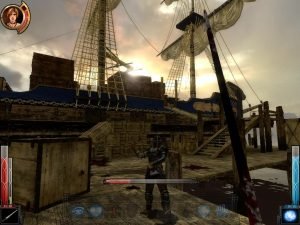 Dark Messiah Might and Magic doesn’t have much in common with the Might and Magic games of old. It tries to do its own thing, but boy is it messy during that whole process. It’s full of glitches and prone to random crashes, and has a surprisingly banal storyline. Its levels are a mix of awesome and awful, with most falling somewhere in between. It’s so schizophrenic that it almost feels as if two developers of wildly different skill levels worked on the game at the same time, and everything was sort of thrown together at the last second. The game is screaming for extra polish and some judicious level editing.
Dark Messiah Might and Magic doesn’t have much in common with the Might and Magic games of old. It tries to do its own thing, but boy is it messy during that whole process. It’s full of glitches and prone to random crashes, and has a surprisingly banal storyline. Its levels are a mix of awesome and awful, with most falling somewhere in between. It’s so schizophrenic that it almost feels as if two developers of wildly different skill levels worked on the game at the same time, and everything was sort of thrown together at the last second. The game is screaming for extra polish and some judicious level editing.
Still, Dark Messiah’s combination of first-person action role-playing sometimes make it a glorious mess. It provides you with tons of violent, entertaining ways to dispatch your foes. It’s a kind of linear sandbox game in that, while you always have to go from point A to B to C, you have a number of options along the way. You can sneak past some combat, or directly engage the enemy. You can cast spells to dispatch your foes or snipe them with arrows from afar. Or you can just rush headlong into violent melee combat armed with the mightiest right foot in gaming history.
The plot is a terrible mixture of fantasy clichés and bad voice acting, and the “Might and Magic†portion of the game’s name is nowhere to be found (except, perhaps, in the excess of cheese). You control a guy named Sareth, an apprentice under some magician who is sent into the world to recover a crystal before someone else gets it and takes over the world. You’re stuck with a nice woman sidekick and a slightly more evil one who runs around topless and who lives in your head or something. Eventually you choose one woman or the other, with each choice giving you a different version of the equally lame end-movie. The story jumps around so much that you rarely have any idea what’s going on, beyond “I need to get to the end of the level.†That’s generally enough.
Developer Arkane Studios’ previous game Arx Fatalis was considered a well-intentioned but somewhat kludgey modern update of Ultima Underworld. This time Arkane took its inspiration from another Looking Glass Software game: Thief: The Dark Project. The early levels are incredibly Thief-like, with some sneaking around, crawling on rooftops, and amazing set pieces. The game is unable to sustain that level of quality, however, and its second half manages to screw up the promise and considerable good will generated by the first.
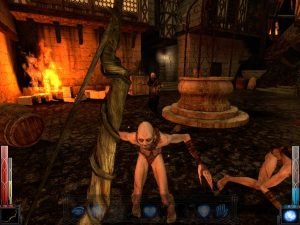 Even in the dullest arenas and levels, there’s something to be said for having a lot of options in combat. Dark Messiah includes some minor role-playing elements that let you tailor your character for melee, stealth, or magic. You can choose to power your way through the game, figuring out optimal ways to kick people into the absurdly common “spike rocks sitting against a wall†or launch people over the ledges of the equally goofy “Orc village set into a cliff†level. (Seriously, who designs games this way? You half expect lava and snow worlds to pop up at some point.)
Even in the dullest arenas and levels, there’s something to be said for having a lot of options in combat. Dark Messiah includes some minor role-playing elements that let you tailor your character for melee, stealth, or magic. You can choose to power your way through the game, figuring out optimal ways to kick people into the absurdly common “spike rocks sitting against a wall†or launch people over the ledges of the equally goofy “Orc village set into a cliff†level. (Seriously, who designs games this way? You half expect lava and snow worlds to pop up at some point.)
Or you can creep around the dark spots, stabbing people in the back. Or you can shoot or chop wooden poles and ropes that hold up roofs, thus causing boxes and other things to fall on people. Or you can play sniper with your bow and take people out from a distance. Or you can cast spells and hope you cast those Orcs away before they stab you to death. Or you can just avoid a lot of the combat in the first place. (You can’t avoid the terrible boss fights, however; they’re bad mostly because you don’t get to use any of the nifty tricks you learn elsewhere. And the less said about the couple of levels that feature lots of spiders, the better.)
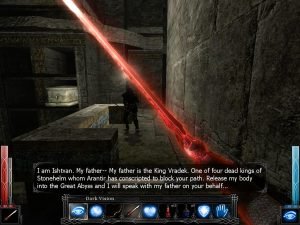 Unlike most games, Dark Messiah offers legitimate options for players to engage in the type of combat they find most appealing. It’s easy to ruin the game by using one style throughout, because Dark Messiah arguably does a poor job of forcing you to apply different techniques to different enemies. They can all be dealt with by kicking them into spikes, for example, but that doesn’t mean you need to play it like this. Creating enemies with certain types of armor or magic that automatically blocked kicks would be an obvious way to circumvent such “kick abuseâ€â€”but that’s an extremely game-y convention.
Unlike most games, Dark Messiah offers legitimate options for players to engage in the type of combat they find most appealing. It’s easy to ruin the game by using one style throughout, because Dark Messiah arguably does a poor job of forcing you to apply different techniques to different enemies. They can all be dealt with by kicking them into spikes, for example, but that doesn’t mean you need to play it like this. Creating enemies with certain types of armor or magic that automatically blocked kicks would be an obvious way to circumvent such “kick abuseâ€â€”but that’s an extremely game-y convention.
Those who rely on the “Foot of Doom†to power through the single-player portion of the game will be ill equipped to handle the surprisingly well-developed multiplayer. Despite the tendency of its combat to devolve into button mashing, the game rewards players who have multiple skills. There are class-based Deathmatch and Capture the Flag modes, and one called Crusade that’s like playing a fantasy version of Assault from Unreal Tournament.
* * *
Combat takes place over multiple maps, and you earn experience that you can spend on improving your character. The system’s a bit crude, and the load times are eternal (this is true of the single-player game, as well), but there’s something incredibly visceral and exciting about one-on-one multiplayer melee.
It’s hard to call Dark Messiah a great game, at times even hard to call it a good one. For all its terrible level design and storytelling, it does deliver in one area. It’s at least memorable, though not always for the good reasons (“damnit game, stop crashing on me”). But you’ll remember doing in the various Orcs, Undead, and possibly Orcish Undead in as many humorously violent ways as possible. The visuals are bright and colorful, and the adventure is at least amusing when it’s not merely tolerable.
System Requirements: Pentium IV 2 GHz, 512 MB RAM, 7.2 GB HDD, 128 MB Video, WinXP
-
Buy Game
store.steampowered.com -
Download Demo
archive.org

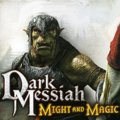






















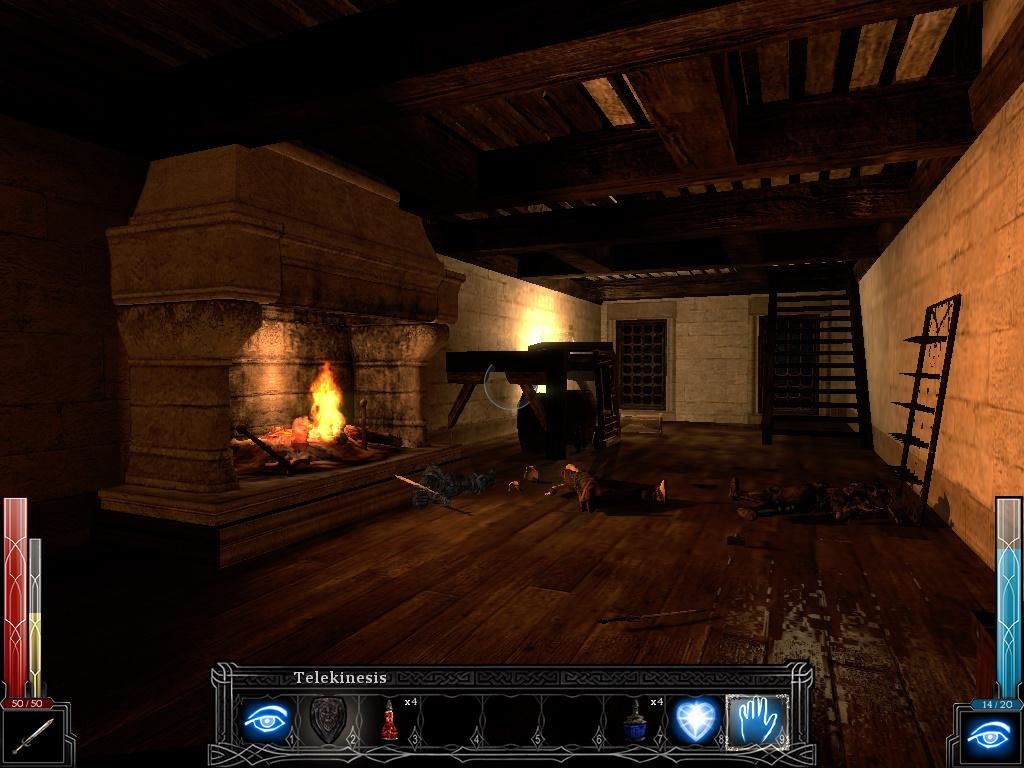


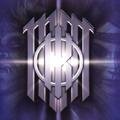



Note: game compatible with Win7
This is a topic that is close to my heart… Thank you! Where are your contact details though?
Aw, this was a very nice post. Taking the time and actual effort to produce a top notch article… but what can I say… I procrastinate a lot and never manage to get anything done.
Passing this on.
Great piece of content.
Exceedingly interesting.
Thanks for keeping me updated! Articles like this are perfect reads to keep up with the industry!
Great piece of content.
Informative.
Informative.
I am sharing.
Good on you for sharing.
Thanks for keeping me updated! Articles like this are perfect reads to keep up with the industry!
Passing this on.
Great piece of content.
Hey hey!
Thanks for keeping me updated! Articles like this are perfect reads to keep up with the industry!
Well, I’m glad to have read this to say the least. Never would have dove into this topic myself. Very interesting!
Wow! In the long run I purchased a weblog from where I be able to really get helpful data regarding my study
and knowledge.
Here is my blog … ShaJTennille
I am following.
Passing this on.
Sharing this with coworkers.
I am sharing.
Thank you for sharing.
Passing this on.
Great piece of content.
Very interesting.
win money games free
Hey hey!
CBD for the win!
Passing this on.
Informative.
Informative.
Great piece of content.
I will be looking for more of your work.
Hey hey!
Passing this on.
Right away I am just disappearing to accomplish my breakfast,
after having my breakfast coming yet again to read further
news.
Feel free to surf to my site; bullet journal dotted grid notebook
Hey There. I found your website using msn. This can be an extremely well written article.
I’ll make sure to bookmark it and return to learn much more of your useful
info. Many thanks for the post. I will certainly return.
Feel free to visit my homepage; SheltonVOpie
Link exchange is definitely not else except it is only placing
other person’s blog link in your page at appropriate place and other
person will likely do similar for you.
My web site: notebook wallet field notes
Cechą talentu jest niemożność pisania na zamówienie… Poza tym to Zgadzam się z Tobą w 100 i popieram w/w poglądy w soposb preSubiektywny 🙂 E. Zegadłowicz.
Hello there. I discovered your web site via Google at the same time as searching for a comparable subject, your web site came up. It looks good. I have bookmarked it in my google bookmarks to visit then.
Best view i have ever seen !
As I website owner I believe the subject material here is very good , thankyou for your efforts.
We stumbled right here provided by a different
page and thought I may as well check things out.
I love a few things i see so now i’m following you.
Anticipate looking over your web page for any second time.
Also visit my website; MerriNGascot
I recognize there’s lots of spam on this website. Do you need help cleansing them up? I may help among courses!
Awesome post. I’m a normal visitor of your web site and appreciate you taking the time to maintain the nice site. I’ll be a regular visitor for a long time.
Howdy are using WordPress for your blog platform? I’m new to the blog world but I’m trying to get started and create my own. Do you require any html coding knowledge to make your own blog? Any help would be really appreciated!
Hi! I just wanted to ask if you ever have any trouble with hackers? My last blog (wordpress) was hacked and I ended up losing a few months of hard work due to no back up. Do you have any solutions to prevent hackers?
Best view i have ever seen !
I’m also commenting to let you understand of the nice experience my wife’s princess undergone visiting the blog. She learned such a lot of issues, with the inclusion of what it’s like to have an ideal helping mood to let other individuals effortlessly understand several tortuous subject matter. You undoubtedly surpassed my expected results. Thanks for distributing those insightful, safe, informative and easy thoughts on the topic to Sandra.
An interesting discussion is definitely worth comment. I do think that you ought to write more on this issue, it may not be a taboo matter but generally people do not speak about these topics To the next! Best wishes!!
Again and again and again I like to think about this difficulties. In fact it was not even a week ago that I last thought about this very situation. Frankly, what is the answer though?
Incredibly high-quality information. keep up the fantastic work. nintendo games
http://studioall.net/life-lessons-from-bikram-yoga/
Is it possible to make a spoiler button in blogger blog posts ? I don’t know javascript and know very basic html only. I’ve tried copying snippets of javascript into my posts to try but most of them doesn’t work. Some only works in the create post window but after publishing it doesn’t work anymore. Most buttons just does nothing after being clicked. Any solutions ?.
There are a lot of blogging sites dedicated to celebrities (ex. Perez Hilton), love, fashion, travel, and food. But, how do I start one of my own specialty?.
I want to do a live webcast, but I can’t figure out how to do it on the Blogger platform. Can anyone give me some direction?. . Thanks!.
This article is very helpful. Develop a passion for learning. If you do, you will never cease to grow.Learn Spanish Online for Free
Very interesting details you have observed, appreciate it for putting up.
I love everything about Spanish. Great article.Learn Spanish Online for Free
Rattling great info can be found on site. “The quality of an organization can never exceed the quality of the minds that make it up.” by Harold R. McAlindon.
Best view i have ever seen !
I have been browsing online more than three hours today, yet I never found any interesting article like yours. It’s pretty worth enough for me. In my opinion, if all web owners and bloggers made good content as you did, the web will be a lot more useful than ever before.
This was awesome! I would like you to clean up all this spam though
Dabpadzashcatcher for bong14mm 45 Degree Showerhead Ash Catcher By DiamondThis is because the ash catcher would make your piece top-heavy, increasing the likelihood of an accident and breakage. On the contrary, massive bongs are usually paired with large ash catchers to keep the aesthetic consistent.
This was great! I would like you to clean up all this spam though
This was great! I would like you to clean up all this spam though
This was great! I would like you to clean up all this spam though
Best view i have ever seen !
Have you ever heard of second life (sl for short). It is basically a video game where you can do anything you want. Second life is literally my second life (pun intended lol). If you would like to see more you can see these second life articles and blogs
Have you ever heard of second life (sl for short). It is essentially a video game where you can do anything you want. SL is literally my second life (pun intended lol). If you want to see more you can see these sl authors and blogs
Have you ever heard of second life (sl for short). It is essentially a online game where you can do anything you want. sl is literally my second life (pun intended lol). If you want to see more you can see these Second Life articles and blogs
Thank you ever so for you blog.Thanks Again. Fantastic.
Best private proxies and most readily useful proxy prices – buy inexpensive proxy on DreamProxies.com
we need more of this delta 8 gummies
Oh my goodness! an incredible article dude. Thanks However I am experiencing difficulty with ur rss . Don’t know why Unable to subscribe to it. Is there anybody getting identical rss drawback? Anybody who knows kindly respond. Thnkx
hello there and thank you for your information – I have certainly picked up something new from right here. I did however expertise some technical issues using this site, since I experienced to reload the site lots of times previous to I could get it to load correctly. I had been wondering if your hosting is OK? Not that I’m complaining, but sluggish loading instances times will very frequently affect your placement in google and could damage your quality score if advertising and marketing with Adwords. Well I’m adding this RSS to my e-mail and can look out for a lot more of your respective exciting content. Make sure you update this again soon..
keto apple crisp https://ketodietplanus.com/
I just could not depart your site before suggesting that I extremely enjoyed the usual info a person supply on your visitors? Is gonna be back regularly to inspect new posts.
I just couldn’t go away your site before suggesting that I really loved the standard info a person supply for your guests? Is going to be again often to check up on new posts.
Wow, amazing weblog layout! How long have you been running a blog for? you make blogging look easy. The entire glance of your website is fantastic, let alone the content!
international gay dating https://gaydatinglosangeles.com/
writing an essay about yourself https://essayghostwriter.com/
my essay writing https://essaywritercentral.com/
cheapest essay writing service https://essaytag.com/
writing an essay intro https://essaysnet.com/
I’ll remember of your blog site and also examine again below often.
essay writing sites https://onlinecasinos4me.com/
writing an analytical essay https://online2casino.com/
I write very often as well as I genuinely admire your web content. This fabulous short article has genuinely peaked my passion. I am likely going to book mark your internet site as well as keep checking for brand-new details relating to when a week. I opted in for your RSS feed as well.
It’s a shame you don’t have a donate button! I’d without a doubt donate to this fantastic blog! I guess for now i’ll settle for book-marking and adding your RSS feed to my Google account. I look forward to new updates and will share this blog with my Facebook group. Talk soon!
Of course, what a great blog and illuminating posts, I will bookmark your blog.Best Regards!
deposit casino bonus https://casinoonlinek.com/
bovada online casino https://casinoonlinet.com/
essays to write https://dollaressays.com/
writing college essay https://buy1essay.com/
cheap custom essay writing services https://essaytodo.com/
argumentative essay writing https://student-essay.com/
Hmm is anyone else experiencing problems with the pictures on this blog loading? I’m trying to figure out if its a problem on my end or if it’s the blog. Any feedback would be greatly appreciated.
Hello would you mind stating which blog platform you’re working with? I’m going to start my own blog soon but I’m having a tough time deciding between BlogEngine/Wordpress/B2evolution and Drupal. The reason I ask is because your design and style seems different then most blogs and I’m looking for something completely unique. P.S My apologies for being off-topic but I had to ask!
I blog sometimes as well as I truly enjoy your content. This fabulous short article has genuinely peaked my interest. I am mosting likely to book mark your internet site as well as keep looking for unique info about once a week. I opted in for your RSS feed too.
Write more, thats all I have to say. Literally, it seems as though you relied on the video to make your point. You obviously know what youre talking about, why throw away your intelligence on just posting videos to your blog when you could be giving us something informative to read?
I do agree with all the ideas you’ve presented in your post. They’re really convincing and will definitely work. Still, the posts are too short for beginners. Could you please extend them a bit from next time? Thanks for the post.
Excellent post. I was checking continuously this blog and I’m impressed! Extremely useful info specially the last part 🙂 I care for such info much. I was seeking this particular info for a very long time. Thank you and best of luck.
Wide shots cause the goalie to really stretch.
แทงบอลออนไลน์ เว็บบาคาร่าออนไลน์ที่ถูกพูดถึงมากที่สุด เป็นเว็บพนันออนไลน์ที่มีความมั่นคงทางการเงินสูง หมดห่วงเรื่องการเงินไปเลยครับ ไม่เพียงเท่านั้น แทงบอลออนไลน์ ยังเป็นแหล่งรวมเกมมากมายที่พร้อมให้คุณได้ร่วมเล่นเพื่อทำเงินสร้างรายได้แบบง่ายๆ ด้วยระบบรองรับระดับสากลจะทำให้คุณสนุกได้แบบเต็มที่แบบไม่ต้องกั๊กไปเลยครับ
ไม่ว่าท่านจะเป็นสาวกไหนก็สามารถใช้ความรู้เกี่ยวกับฟุตบอลของท่านมาเปลี่ยนเป็นเงินเพื่อสร้างรายได้แบบง่ายๆที่ เว็บพนัน เพราะเป็นเว็บแทงบอลออนไลน์ที่ได้รวบรวมทุกเกมไว้หมด เพียงท่านสมัครเข้ามาเป็นสมาชิกกับเราก็ร่วมเล่นได้ทุกเกมแบบไม่มีข้อแม้
เราอยู่ในยุคที่ไม่ควรลงทุนอะไรเลยเพราะเป็นช่วงเศรษฐกิจที่เสี่ยงเจ้งมากๆ การหาเงินแบบไม่ต้องลงทุนหรือลงทุนน้อยจึงเป็นทางรอด เว็บการพนันออนไลน์อันดับ 1 สล็อตออนไลน์ที่ลงทุนแค่ 100 บาท ก็สามารถสร้างรายได้ให้อย่างไม่จำกัด ฝากถอนไม่มีขั้นต่ำด้วยระบบอัตโนมัติ
เว็บคาสิโนออนไลน์ที่เป็นที่นิยมชมชอบของนักพนันมากที่สุดเห็นจะเป็น สล็อตออนไลน์ เว็บพนันออนไลน์ที่ดีที่สุดที่ถูกกล่าวถึงในโลกโซเชียลมากมายว่าเป็นเว็บไซต์ที่จ่ายจริงเพราะมีความมั่นคงด้านการเงินสูงมาก ถือเป็นเว็บคาสิโนออนไลน์ยักษ์ใหญ่เลยทีเดียว
เว็บพนัน เว็บสล็อตออนไลน์ที่ได้รับความไว้ใจจากนักพนันจำนวนมากจึงมีสมาชิกที่เลือกเข้ามาเล่นสล็อตกับทางเว็บไซต์จำนวนและมีแนวโน้มจะเพิ่มขึ้นเรื่อยๆ เว็บการพนันออนไลน์อันดับ 1 ใช้ระบบฝากถอนอัตโนมัติยิ่งเพิ่มความสะดวกสบายมากขึ้นไปอีกนะครับ
อยากเล่นสล็อตออนไลน์ต้องที่ แทงบอลออนไลน์ นะครับเพราะเป็นเว็บไซต์ที่เชื่อถือได้ จ่ายจริงจ่ายเต็มที่สำคัญแจ็คพอตเยอะมากแตกง่ายแตกไวทำกำไรได้ไม่ยั้ง สล็อตออนไลน์สามารถทำเงินให้คุณได้สูงถึง300-400 เท่าไม่เพียงเท่านั้นยังเล่นง่ายแม้มือใหม่ก็สามารถทำเงินได้
When you attend your child’s soccer game remember to be positive and supportive and be a good sport.
การแทงบอลออนไลน์ถือเป็นทางเลือกที่ได้รับความนิยมสูงมากนั่นเพราะให้กำไรสูงถึงแม้จะมีต้นทุนต่ำก็ตาม คาสิโนออนไลน์ ก็เป็นเว็บแทงบอลออนไลน์อีกหนึ่งทางเลือกที่ได้รับความนิยมสูงสุดเช่นกันนั่นเพราะเป็นเว็บที่มีความหลากหลายและน่าเชื่อถือทั้งระบบดูแลก็ดีที่สุดอีกด้วย
After you have practiced for thirty minutes, come back inside and watch the move again noting any changes you need to make to your practice.
sex games nude https://sexgameszone.com/
Push yourself by completing writing exercises.
อยากดูบอลสด อยากแทงบอลออนไลน์ต้องที่ การพนันออนไลน์ เลยครับ สมัครง่าย เล่นง่าย ระบบเจ๋ง ที่สำคัญที่สุดเล่นแล้วได้เงินจริง ทำเงินได้จริง ในเว็บไซต์มีบริการเกมมากมาย ทั้งบาคาร่า สล็อต ยิงปลา เหมือนยกคาสิโนมาไว้ในเว็บไซต์เลยครับ
You are there to work on your technique, train, and make practice.
คาสิโนออนไลน์ คาสิโนออนไลน์ที่ถูกกล่าวถึงมากที่สุดขณะนี้เนื่องด้วยเป็นเว็บยอดฮิตสูงสุด มีเกมให้เล่นเยอะแยะ จ่ายจริง จ่ายเต็ม แบบไม่มีกั๊ก สมัครง่าย ใช้ระบบฝากถอนอัตโนมัติ ไม่เพียงเท่านั้นยังมีทีมงานดูแลตลอด 1 วัน
กระแสพนันออนไลน์ว่าแรงแล้ว ยังแรงไม่สู้โปรโมชั่นเด็ดๆที่ เว็บการพนันออนไลน์อันดับ 1 ขยันเอาใจสมาชิกมากมายขอรับ แล้วก็ชื่นชอบผมซะด้วย ไม่ใช่แค่เรื่องโปรโมชั่นนะครับ ผมถูกใจที่เค้ามีเกมให้เลือกมากมาย ทั้งยังพนันบอล บาคาร่า ยิงปลา สล็อต เกมใหม่ๆมีหมด
การพนันออนไลน์ ทำให้การไปคาสิโนเป็นเรื่องง่ายเพราะเหตุว่าคุณไม่จำเป็นต้องเดินทางไปไหน อยู่บ้านหรืออยู่ที่ไหนก็สามารถทำเงินได้อย่างไม่ยากเย็นสมัครก็ง่ายใช้เวลาไม่ถึง 3 นาที ก็ร่วมเล่นเกมได้เลยทันที ทางเว็บไซต์ของพวกเรามีเกมหลากหลายทั้งยังบาคาร่า พนันบอล สล็อต ยิงปลา แล้วก็เกมใหม่อีกเพียบ
It’s a quick game with lighting fast passing and if you turn your head you could miss a really great pass.
Familiarize yourself with things such as draft or auction style.
พนันบอลออนไลน์บอกเลยครับผมว่าคอบอลไม่ควรพลาดเนื่องจากคุณสามารถกระทำพนันได้อย่างไม่ยากเย็นโดยไม่ต้องเดินทางไปโต๊ะบอลเสมือนสมัยเก่าเพียงแต่คุณเข้ามาที่ แทงบอลออนไลน์ แล้วสมัครสมาชิกคุณก็สามารถเดิมพันได้เลยทันที ฝากถอนไม่มีอย่างน้อยใช้ระบบอัตโนมัติ สะดวกปลอดภัย
neko sex games https://sexygamess.com/
free sex board games https://winsexgames.com/
Some players tend to focus entirely on what is directly in front of them and forget to keep tack of where their team mates are.
Learning to run through a defender is essential to scoring points.
ซึ่งผู้เล่นทุกท่านจะได้พบกับเว็บคาสิโนออนไลน์ คาสิโนออนไลน์ ที่กำลังเป็นที่นิยมในกลุ่มนักเดิมพันมากที่สุดในเอเชีย โดยได้รับการยอมรับจากสมาชิกว่าเป็นเว็บไซต์คาสิโนออนไลน์ที่ให้บริการรวดเร็ว
school sex games https://sexgamesx.net/
You need to show a proactive spirit to make a successful blog.
Now, it’s time to keep learning, and this article is here to help.
The defense will quickly notice this pattern and anticipate it.
Heya im for the first time here. I came across this board and I find It truly useful & it helped me out much. I hope to give something back and help others like you helped me.
johnny test sex games https://cybersexgames.net/
Excellent blog here! Also your website loads up very fast! What host are you using? Can I get your affiliate link to your host? I wish my web site loaded up as fast as yours lol
1italian
gay dating stockdale texas https://gaypridee.com
free dating gay site https://gay-buddies.com
gay dating professional bodybuilders https://gayprideusa.com
gay older men dating https://speedgaydate.com
adam4adam gay online dating https://gayfade.com
gay chubby chaser dating https://gaysugardaddydatingsites.com
gay male chat site https://bjsgaychatroom.info/
phone number dating gay https://gaypridee.com/
hidden gay video chat https://gaytgpost.com/
gay video chat free https://gay-buddies.com/
gay dating hookup bay area https://speedgaydate.com/
carrera slots https://2-free-slots.com/
free slots/penny https://freeonlneslotmachine.com/
all slots casino https://pennyslotmachines.org/
free las vegas slots https://slotmachinesworld.com/
brazilian beauty slots https://slotmachinesforum.net/
club pogo slots https://slot-machine-sale.com/
best penny slots to play https://beat-slot-machines.com/
slots https://download-slot-machines.com/
facebook free slots games https://411slotmachine.com/
computer memory slots https://www-slotmachines.com/
vegas world slots free https://slotmachinegameinfo.com/
custom dissertation help https://buydissertationhelp.com/
dissertation writing services in usa https://dissertationwriting-service.com/
doctoral dissertation writing help me https://help-with-dissertations.com/
phd thesis vs dissertation https://mydissertationwritinghelp.com/
dissertation title generator https://dissertations-writing.org/
mba dissertation help india https://helpon-doctoral-dissertations.net/
Bardzo ciekawy blog, rzeczowy i wyważony. Od dzisiaj zaglądam regularnie i subsbskrybuje kanał RSS. Pozdrowienia 🙂
I’m impressed by this article, for the valuable presentation and excellent wording. I got so interested in this material that I was unable to stop until I finished.
1botswana
Should you create a general one-size-fits-all resume, which you can submit anytime, anywhere, for any work? What Hiring Professionals say: It is a stupid error! The key fact: Employers have to review up to 400 resumes each day! Which means they throw out any resume that is not definitely targeted to the work being offered.
Thank you a bunch for your useful article. I scan this internet site repeatedly, meaning it is presently one of my favorite web sites!
I think this is clear and worthwhile reading material! I have certainly enjoyed reading your suggestions and have come to the decision that you seem to be correct about many of these.
Today’s employers do not go through each of the four hundred or higher resumes sent to them – for a single employment offering! In reality, they will gladly trash ninety-five percent of them, if any resume does nothing to seize the reader’s attention.
phd dissertation writing https://professionaldissertationwriting.org/
research writing services https://professionaldissertationwriting.com/
writing a literature review for a dissertation https://helpwithdissertationwritinglondon.com/
ma dissertation writing service https://dissertationwritingcenter.com/
citing a dissertation https://dissertationhelpexpert.com/
buy dissertations https://accountingdissertationhelp.com/
dissertation writing plan https://examplesofdissertation.com/
how long is a dissertation https://writing-a-dissertation.net/
acknowledgements dissertation https://businessdissertationhelp.com/
phd dissertation example https://customdissertationwritinghelp.com/
dissertations writing https://writingadissertationproposal.com/
dissertation writing help https://dissertationhelpspecialist.com/
buy dissertation online https://dissertationhelperhub.com/
defending your dissertation https://customthesiswritingservices.com/
online casino stock https://download-casino-slots.com/
harrah’s online casino pa https://firstonlinecasino.org/
real cash online casino https://onlinecasinofortunes.com/
betmgm online casino michigan https://newlasvegascasinos.com/
usa online casino no deposit bonus codes https://trust-online-casino.com/
codeshare online doubledown casino https://onlinecasinosdirectory.org/
greektown casino online https://9lineslotscasino.com/
online casino black jack https://free-online-casinos.net/
online casino dealer https://internet-casinos-online.net/
online casino deposit bonuses https://cybertimeonlinecasino.com/
online real casino https://1freeslotscasino.com/
online casino game real money https://vrgamescasino.com/
casino online for real money https://casino-online-roulette.com/
online casino usa https://casino-online-jackpot.com/
las vegas casino online https://onlineplayerscasino.com/
best paying online casino https://ownonlinecasino.com/
foxwood casino online https://all-online-casino-games.com/
borgata online casino bonus code https://casino8online.com/
Very good article. I certainly love this website. Continue the good work!|
you’re truly a good webmaster. The site loading pace is amazing. It seems that you are doing any distinctive trick. Moreover, The contents are masterwork. you’ve performed a magnificent task in this subject!|
Asking questions are genuinely fastidious thing if you are not understanding anything completely, but this post presents fastidious understanding yet.|
small business vpn client https://freevpnconnection.com/
free vpn? https://shiva-vpn.com/
vpn to buy https://freehostingvpn.com/
best free vpn for firestick https://ippowervpn.net/
x-vpn https://imfreevpn.net/
which vpn is best https://superfreevpn.net/
Hello there! I could have sworn I’ve been to this website before but after reading through some of the post I realized it’s new to me. Nonetheless, I’m definitely happy I found it and I’ll be bookmarking and checking back frequently!|
I have to thank you for the efforts you’ve put in writing this website. I’m hoping to check out the same high-grade blog posts by you later on as well. In truth, your creative writing abilities has motivated me to get my own, personal website now ;)|
joomla gay dating theme https://gay-singles-dating.com/
free dating for bi and gay men https://gayedating.com/
gay right wing dating site https://datinggayservices.com/
free adult dating https://freephotodating.com/
dating kostenlos in sz https://onlinedatingbabes.com/
totally free dating service https://adult-singles-online-dating.com/
meet local singles free https://adult-classifieds-online-dating.com/
best singles website https://online-internet-dating.net/
japanese dating site https://speedatingwebsites.com/
plentyoffish https://datingpersonalsonline.com/
best sites for online dating https://wowdatingsites.com/
free f https://lavaonlinedating.com/
online payment sites https://virtual-online-dating-service.com/
online dating online https://zonlinedating.com/
dating online https://onlinedatingservicesecrets.com/
real vegas online casino https://casinosonlinex.com/
gay chat free no cost https://newgaychat.com/
gay chat webcam room facebook https://gaychatcams.net/
gay guy chat rooms no registration https://gay-live-chat.net/
dick.net gay chat https://chatcongays.com/
chat random gay https://gayphillychat.com/
google zoom gay chat room https://gaychatnorules.com/
best gay chat https://gaymusclechatrooms.com/
free gay bi male text chat https://free-gay-sex-chat.com/
gay ruleete chat https://gayinteracialchat.com/
gay text chat app https://gaymanchatrooms.com/
custom paper writing services https://term-paper-help.org/
who will write my paper for me https://uktermpaperwriters.com/
paper writing services best https://paperwritinghq.com/
college papers to buy https://writepapersformoney.com/
pay for someone to write your paper https://write-my-paper-for-me.org/
buy college paper https://doyourpapersonline.com/
custom writing paper service https://researchpaperswriting.org/
help writing papers for college https://essaybuypaper.com/
write my paper apa format https://papercranewritingservices.com/
write my paper online https://premiumpapershelp.com/
cheapest paper writing service https://ypaywallpapers.com/
pay to do paper https://studentpaperhelp.com/
Thanks for another informative website. Where else may just I am getting that type of info written in such a perfect way? I have a project that I am just now operating on, and I’ve been on the glance out for such info.
It was a good article, thank you
What a great article, I really enjoyed it.
Thank You
Great post! Keep up the great work.
I need as much suggestions as possible. The more the better. I haven’t had the chance to sit and really go over the process. Again, looking for some answers where I can start blogging immediately..
Youre so cool! I dont suppose Ive learn anything like this before. So good to seek out any person with some original ideas on this subject. realy thank you for beginning this up. this website is one thing that is needed on the web, someone with somewhat originality. helpful job for bringing one thing new to the internet!